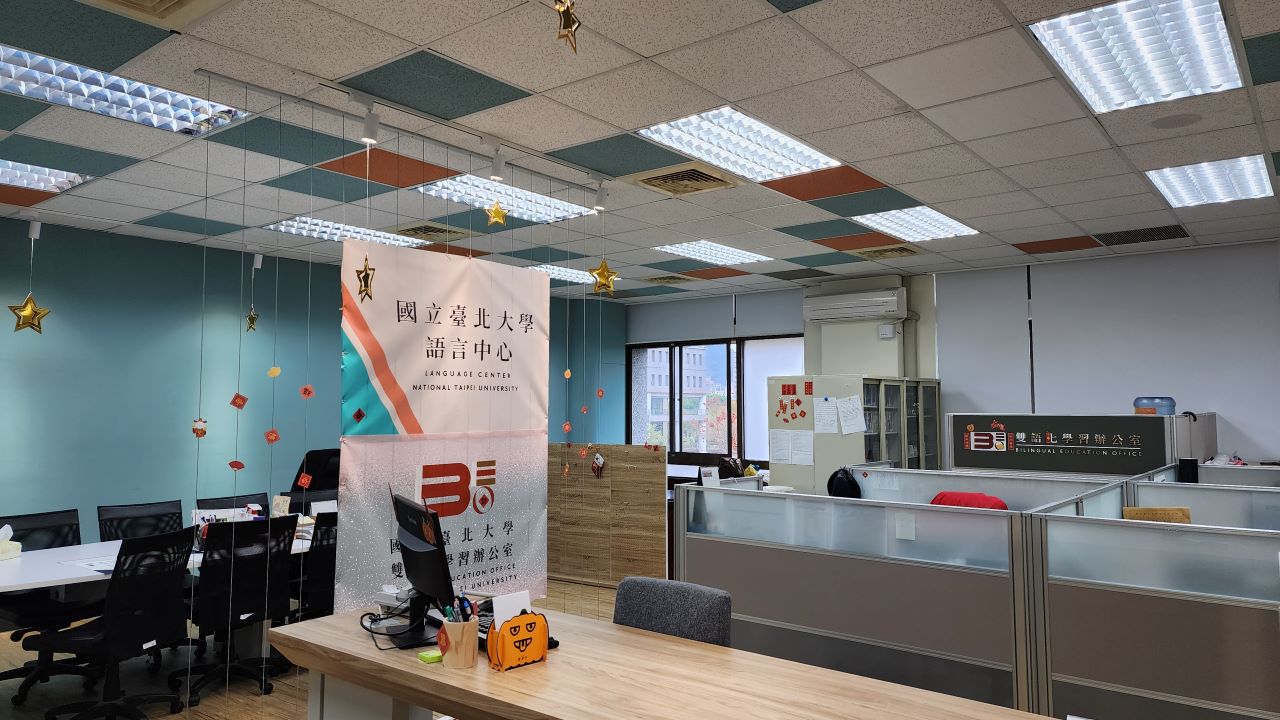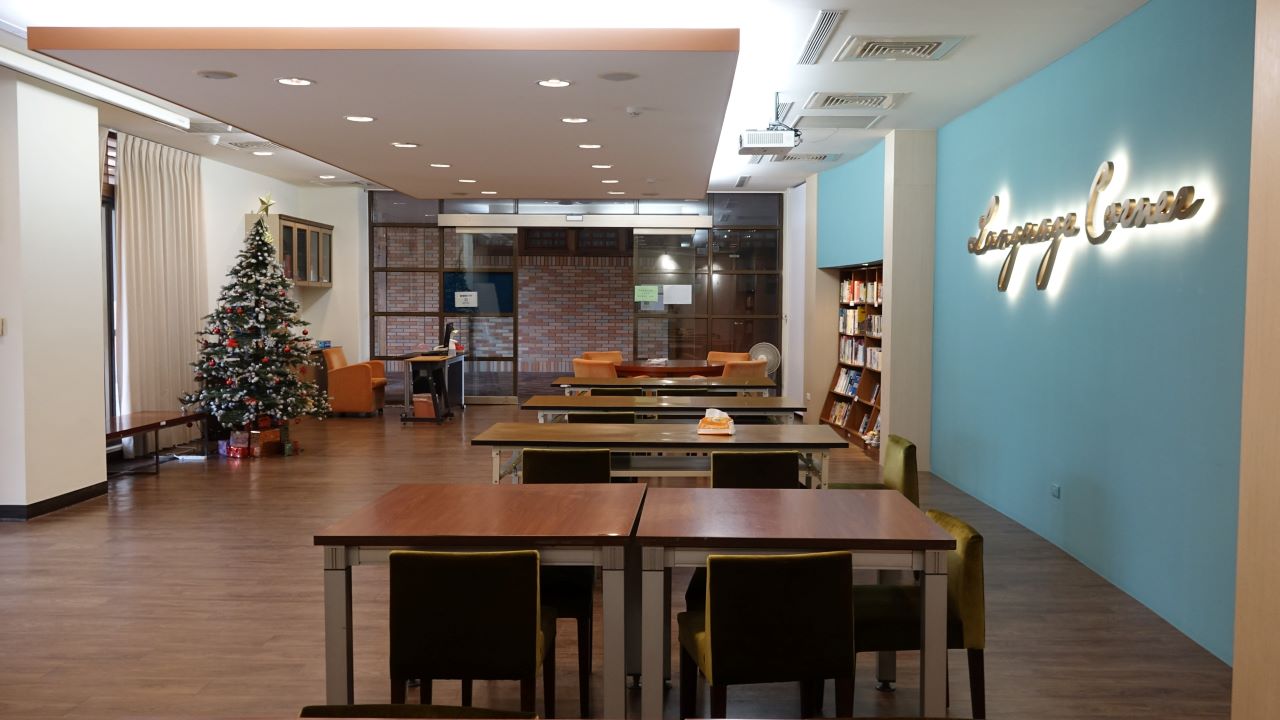NATIONAL TAIPEI UNIVERSITY -College of Business
Abstract
- Institutional strategy and management:
- Formulate “the Regulations Governing the Implementation of Bilingual Education at the College of Business, National Taipei University,” covering the awards and subsidies related to teachers and students, the cooperation measures for new faculty members, the application for English teaching assistants of EMI courses and the required conditions.
- In the 2021/22 academic year, subsidy guidelines for inviting foreign scholars for speeches, short visits, guest lectures, and international study plans were incepted. In addition, regulations related to faculty recruiting, promotion, and appraisals are reformed to accomplish the EMI development target of the CoB.
- Establish the "Bilingual Education Review and Promotion Committee of the College of Business" to formulate and review relevant rules and matters related to various subsidy activities of the CoB‘s EMI Enhancement Plan.
- In order to achieve the strategic development goals, COB recruited 2 faculty members who have the ability to teach EMI courses in the 2021/22 academic year, and 3 more will be recruited in the 2022/23 academic year.
- EMI Teacher training program and reward system: To increase the number of qualified teachers for EMI teaching, we facilitated 14 teachers to participate in Cambridge English online training courses in the 2021/22 Academic year. Those who complete the introductory EMI online training course and obtain the certification will receive a reward of NT$10,000. To promote experience sharing among EMI teachers, we organized 6 EMI teacher communities, forums, and workshops, with more than 300 participants.
- EMI Mentorship program for training and helping instructors: The Language Center recruited an EMI mentor to provide one-on-one classroom observation, teaching skill guidance, and feedback for the evaluated faculty to ensure syllabus alignment, teaching effectiveness, and quality of EMI courses.
- EMI TAs Training: EMI TAs must have a minimum of CEFR B2 level English proficiency to participate in the TAs’ EMI skill training. In the past academic year, 35 students joined the EMI TAs training session offered by National Taiwan University. Among them, 13 later served as EMI TAs in courses at both undergraduate and graduate levels in the 2021/22 second semester.
- Teacher Community: CoB faculty members shall create communities based on their expertise; members could have the opportunity to share, interact and learn from the guest speakers and each other in the events organized. Three EMI communities were established in the 2021/22 academic year. They are in the field of general management, finance and accounting, marketing, information management, and statistics. There were 9 workshops held in the 2021/22 academic year, providing faculty members with chances to share experiences on EMI teaching.
- International collaboration: There were 2 foreign scholars providing courses at the CoB before the EMI project launched. In the 2021/22 academic year, 4 professors from the U.S. and Canada were invited to offer joint courses with faculty members at the CoB. The CoB also has international collaborations with Hitotsubashi University and Waseda University in Japan in scholar exchanges and overseas study programs, which involve international scholars teaching and providing assistance in these programs. It facilitates the bilingual education program and EMI courses at the NTPU.
- Curriculum development fee: Subsidies are given to EMI teachers based on the payment method of the hourly teaching fee to facilitate the CoB’s EMI Enhancement Plan.
- English for Specific Academic Purposes courses: EMI bridging courses in ESAP can prepare students to adapt to EMI learning in their fields. Students will learn the jargon, read and understand professional content more effectively, and improve their academic communication ability through these EMI bridging courses. The Language Center has provided a new ESAP course, Academic Presentation in Business, in the current academic year.
- CoB EMI module courses: In order to promote curriculum flexibility and cross-disciplinary learning, the CoB has established the EMI Organizational Module, EMI Finance Module, and EMI Marketing Module in the 2021/22 academic year. 21 students received the EMI module certificates.
- English-related competitions:(1)2022 Sustainable Development Goals (SDGs) English Presentation Contest: To improve students’ oral English ability and promote English as the medium of communication among students of the four universities of the University System of Taipei, we held the English briefing competition for the sustainable development of the USTP union. Contestants from four universities, including the National Taipei University, National Taipei University of Technology, National Taiwan Ocean University, and Taipei Medical University, published three-minute briefings on the theme of SDGs. The number of participants reached 101.(2)English Extensive Reading Competition: Students taking College English courses are encouraged to utilize the Xreading online learning platform to engage in substantial English reading. The number of participants reached 170.(3)Read & Share program: The Language Center promotes a Read & Share program where students produce book reports that external reviewers evaluate. There is a mandatory presentation competition at the end of the semester to assess English speaking. The number of participants reached 66.
- Online self-study resources: We provide students with online English learning resources such as MasterClass, Xreading, and Grammarly, as well as business modules on the MyET online oral English learning platform to help students improve their learning efficacy.
- Study Groups: The Language Center facilitated 4 English Study Groups (TOEIC, IELTS, Academic Presentation in Business, and English Conversation) to provide various English enhancement engagements. A total of 49 students participated, with a 4.31 satisfactory rate on a 5-point scale.
- English Clinic service: The teachers of the Language Center provide 6 to 8 sessions per week to assist students in revising English documents for job and school applications and provide consultation on diverse English learning problems.
- BEO website: The BEO established a website to publicize the bilingual program’s methods, course information, and event announcements.
- NTPU BEO Voice: The BEO and Language Center invite school policy executors, teachers, and students to participate in the recording of the Podcast “NTPU BEO VOICE” so that teachers and students can understand the relevant strategy and training, reward, and subsidy information about EMI implementation. Twenty-five episodes aired on Apple and Google Podcasts, with more than 1797 downloads.
- EMI briefings: There are EMI briefings conducted for faculty at each department and EMI briefings conducted for students at the CoB to provide a chance for faculty and students to elaborate more about the EMI program and all support, subsidies and awards related to EMI teaching and learning, as well as the subsidy application schedule, in order to facilitate the development and innovation of EMI. A total of 265 faculty and students participated in the briefings.
- Quality assurance: EMI course survey: We conduct the Google questionnaire to assess the students’ learning and understand their difficulties in taking the EMI courses. Among the 337 valid results, 168 people (49.85%) have taken EMI courses. In the question, “Are you satisfied with the total number of EMI courses offered by our school?” 144 (49.5%) undergraduate students answered “average,” 93 (32%) answered “agree,” while 27 graduate students (58.7%) answered “average,” and 13 (28.3%) answered “agree.”
- Resource sharing and collaboration:
- Inter-school EMI activities: (1) Three cross-school workshops of the University System of Taipei were held, totaling 61 participants. (2) Two EMI forums were held, one on January 27th, with the theme, “EMI Practice in Higher Education,” with 161 participants, and another on May 27th, the Business School EMI Teaching Forum, with 84 participants.
- Cross-campus EMI courses: Continuously let students in the four universities in the University System of Taipei (USTP) be able to elect EMI courses across USTP to increase the number and diversity of EMI courses and strengthen the interaction and communication between teachers and students across the universities.
- Other enhancement initiatives:
- An annual donation of six million NT dollars from one NTPU alumni, Mr. Tsang-Ku Chen (Chairman of IMI Group), facilitates international exchanges and provides scholarships for students participating in international exchange programs or overseas studies.
- Two case classrooms were built from one NTPU alumni, Mr. Kuan-Yu Chao’s donation, to facilitate the EMI teaching delivery and enhance bilingualization of the CoB. These two classrooms were completed and put to use in 2021 Nov. The CoB received another donation from alumni in 2011 and would renovate 3 classrooms for EMI community activities, workshops, and MOOCS recording. It is expected to be enabled in 2023 Feb.


Back to University Outcome

